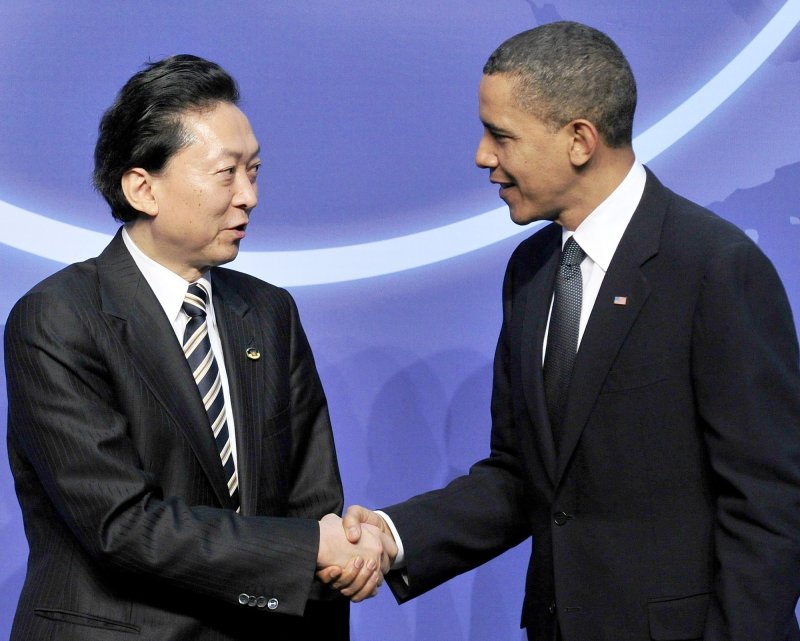U.S. President Barack Obama (R) and Japanese Prime Minister Yukio Hatoyama shake hands during the Nuclear Security Summit in Washington April 12, 2010. UPI/Ron Sachs/Pool |
License Photo
TOKYO, May 28 (UPI) -- Japan and the United States, welcoming an accord on relocating the U.S. base in Okinawa, agreed Friday to deepen their post World War II alliance.
The accord, in line with an agreement the United States concluded in 2006, said the U.S. Marine base's Futenma air station would remain in Okinawa but moved to a less populated area.
The issue had become an irritant in U.S.-Japan relations in recent months because Japanese Prime Minister Yukio Hatoyama -- in his election campaign in August -- had pledged to move the facility out of Okinawa and maybe even out of the country. Okinawa is a southern prefecture of Japan.
Japan's chief Cabinet secretary, Hirofumi Hirano, said Hatoyama and U.S. President Barack Obama spoke by telephone, welcomed the accord and agreed to deepen the countries' longstanding alliance, Kyodo News reported. The two leaders also discussed their response to the sinking of a South Korean warship, which raised tensions in the region after experts blamed North Korea for the March 26 incident.
The White House said Hatoyama and Obama "expressed satisfaction with the progress made … in reaching an operationally viable and politically sustainable plan to relocate'' the base air station.
"Our alliance has been and continues to be the cornerstone of our policy in Asia,'' U.S. State Department spokesman Michael Tran told Kyodo.
The Washington Post earlier this week reported U.S. officials and analysts cited security threats to Japan in persuading Hatoyama to keep the Okinawa base. A U.S. official told the Post about the dangers in the region and said the base arrangements are critical to Japan's security.
Nonetheless, the issue had made residents in Okinawa irate and led to strains within Hatoyama's coalition government, with one coalition partner threatening to leave if the facility was retained in Okinawa.
The Japan Times reported Hatoyama could either seek approval of the accord from his Cabinet or issue a prime ministerial statement, which would not require the signatures of his ministers.















